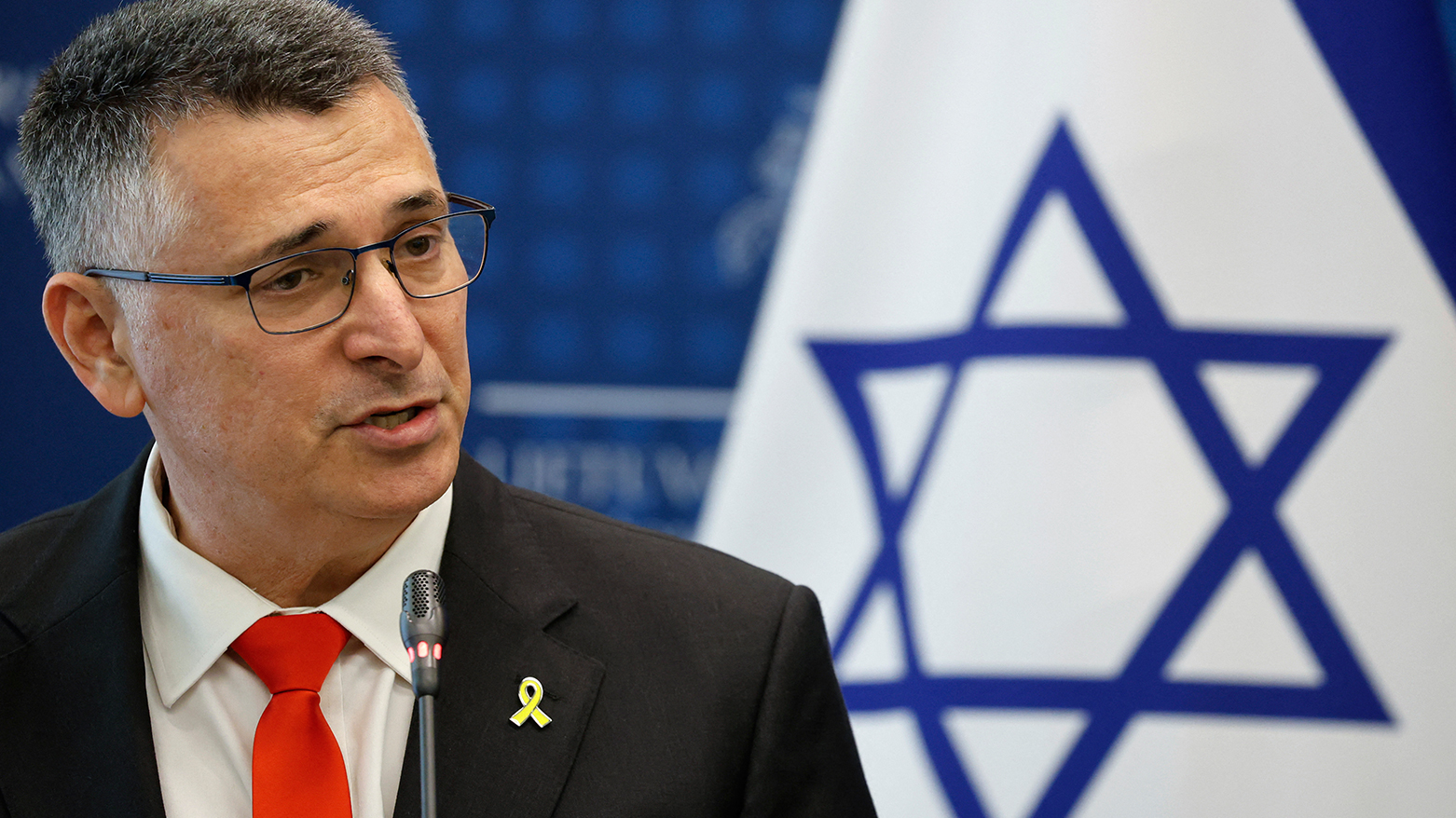Israel’s Foreign Minister Says Gaza War Could End Tomorrow If Hamas Meets Two Conditions
Israel's FM Sa'ar says Gaza war could 'end tomorrow' if Hamas releases hostages & disarms, as ceasefire talks continue. During Baltic tour, he highlights EU humanitarian coordination & defends strikes on Iran's nuclear/missile programs while pushing regional normalization.

ERBIL (Kurdistan24) – Israeli Foreign Minister Gideon Sa’ar said Monday that the war in Gaza could “end tomorrow” if Hamas releases the remaining hostages and lays down its arms, reiterating Israel’s readiness for a ceasefire deal under those two conditions. His remarks came during a visit to Latvia as part of a three-day diplomatic mission to the Baltic states.
“Hamas is still holding around 50 individuals,” Sa’ar said during a joint press conference with his Latvian counterpart, “and if they were to release the captives and agree to disarm, the war could end tomorrow.” He accused Hamas of being responsible for both the outbreak and continuation of the war, asserting that Israel has already agreed to the terms of the latest proposal by U.S. envoy Steve Whitkoff.
Ceasefire Talks and Conditions
According to Sky News, Sa’ar said that Israel is “serious about reaching a ceasefire and prisoner exchange deal,” and has accepted the latest terms put forward by the United States. He maintained that Hamas, in contrast, has so far refused to commit.
However, in recent statements, Hamas leader in Gaza Khalil al-Hayya denied rejecting the American proposal. He said the group had requested “modifications and guarantees” to ensure an end to the war, and expressed readiness to resume negotiations through mediators.
The current proposal involves a 60-day truce, the release of 28 out of 56 Israeli hostages in exchange for more than 1,200 Palestinian prisoners, and the delivery of humanitarian aid to Gaza. Hamas insists it will not release the remaining captives unless Israel commits to ending the war—something Prime Minister Benjamin Netanyahu has repeatedly rejected unless Hamas is fully disarmed and dismantled.
EU Dialogue and Gaza Humanitarian Situation
Meanwhile according to Israel Times, when Sa'ar was in Vilnius, Lithuania, he revealed that Israel had begun a new dialogue with representatives of the European Union on the humanitarian situation in Gaza. “We are open,” he said. “We don’t want Hamas to use the humanitarian aid as an economic asset, but we want it to go directly to the people of Gaza.”
He added that since both Israel and the EU “share the same goals,” there may be new avenues for cooperation in delivering assistance to civilians while ensuring aid is not diverted by armed groups.
Israel’s Regional Vision: Peace with Syria and Beyond
Sa’ar also addressed questions about potential peace talks with Syria. “We would like all our neighbors to be part of the normalization and peace process, including Syria, Saudi Arabia, and Lebanon,” he said. While acknowledging Israel’s “security needs,” he emphasized that all nations in the region stand to benefit from improved relations.
He cited Israel’s growing economic ties with the United Arab Emirates as a model, even amid the ongoing war in Gaza: “Trade is increasing. Even through this war, we have great relations.”
Strikes on Iran and Global Security
The Israeli diplomat defended Israel’s joint military campaign with the United States against Iran last month, calling it part of “a broader struggle between the free world and the axis of terror” led by Tehran and its regional proxies. He said the operation significantly set back Iran’s nuclear program and destroyed long-range missiles “capable of reaching Europe,” along with drone supplies used by Russia in its war on Ukraine.
Strategic Partnership with Europe
Sa’ar’s Baltic tour, which includes visits to Lithuania, Latvia, and Estonia, aims to deepen bilateral ties with European partners. In Vilnius, he described Israel as “a strategic partner for Europe” and “an asset to the Western world in the Middle East.” He highlighted cooperation in trade, defense, and technology, despite a small protest by pro-Palestinian demonstrators outside the venue.
His trip will also include meetings with senior officials such as the Estonian prime minister and the president of Latvia. Sa’ar’s remarks signal Israel’s broader diplomatic strategy: to build partnerships in Europe, expand normalization in the region, and seek security guarantees through both dialogue and deterrence.